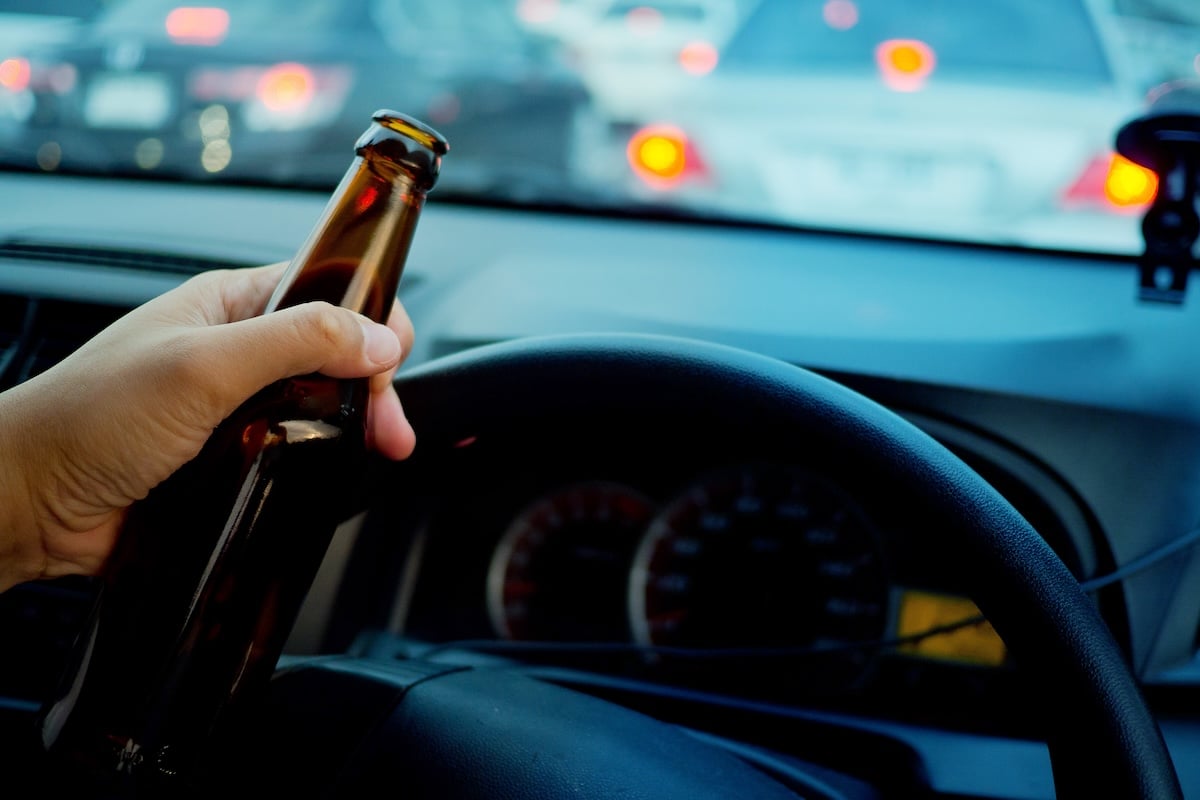If you’ve been arrested for a DWI in Minnesota, or want to understand how the laws have changed, you’re not alone. Minnesota’s DWI laws have evolved in recent years, and even small changes can have a major impact on your rights, license, and freedom.
In this blog, we’ll cover:
- What qualifies as a DWI in Minnesota today
- Recent legal updates that affect penalties, license suspension, and interlock programs
- What to do if you’ve been charged
Whether this is your first offense or you’re helping someone else understand the process, this guide will give you the facts you need.
What Counts As A DWI In Minnesota?
DWI stands for Driving While Impaired. You can be charged with DWI in Minnesota if you operate a motor vehicle while:
- Having a blood alcohol concentration (BAC) of 0.08% or more
- Under the influence of alcohol, even if your BAC is below 0.08%
- Under the influence of illegal drugs, prescription drugs, or controlled substances
- Having any amount of a Schedule I or II controlled substance in your body (excluding marijuana)
It’s important to know that a DWI isn’t just about drinking. Prescription medications and other substances can lead to a DWI if they affect your ability to drive safely.
Recent Changes To Minnesota DWI Laws
Minnesota DWI laws are updated frequently, often to respond to changes in technology, public safety data, and court decisions. Starting August 1, 2025, major changes will take effect. Here are the most important updates:

1. Longer “Look‑Back” Period
The state is extending the time during which past DWIs count against you from 10 to 20 years. A DWI from nearly two decades ago can now increase your penalties if you’re charged again.
2. Expanded Ignition Interlock Rules
If you have more than one DWI in 20 years, ignition interlock will be mandatory to regain full driving privileges. The new required usage periods are:
- 2 years for 1 prior DWI
- 6 years for 2 prior DWIs
- 10 years for 3 or more DWIs
3. Early Interlock Enrollment Option
You can now start the ignition interlock program before paying your reinstatement fee, giving you a faster way to return to limited driving. You must still pay the full fee to regain a standard license.
4. Mandatory Substance Use Treatment
All drivers in the ignition interlock program must complete a licensed substance use disorder (SUD) treatment program before full reinstatement of driving privileges.
5. New Penalties For Interlock Violations
Driving without the required interlock device, tampering with it, or letting someone else drive your vehicle without it can now lead to gross misdemeanor charges.
6. Felony DWI Thresholds Remain Strict
A DWI becomes a felony if it’s your fourth offense in 20 years or if you have a prior felony DWI conviction. Felony DWI in Minnesota can result in:
- Up to 7 years in prison
- Fines up to $14,000
- Long-term license revocation
- Vehicle forfeiture and felony-level probation
DWI Penalties: What You Can Expect Today
DWI penalties in Minnesota vary based on your BAC, prior offenses, and any aggravating factors like test refusal or having a child in the vehicle.
First-Time DWI (BAC under 0.16%)
- Misdemeanor
- Up to 90 days in jail
- Up to $1,000 in fines
- License suspension of 90 days
- Possible requirement to attend alcohol education or treatment
- Limited license (work permit) available after 15 days
First-Time DWI (BAC 0.16% or higher, or test refusal)
- Gross misdemeanor
- Up to 1 year in jail
- Up to $3,000 in fines
- License suspension up to 1 year
- Ignition interlock required for reinstatement
Second or Third DWI
- Gross misdemeanor
- Up to 1 year in jail
- Higher fines
- Longer license suspension or cancellation
- Vehicle forfeiture
- Mandatory alcohol treatment or monitoring
Fourth DWI (Felony)
- Felony DWI
- Up to 7 years in prison
- Up to $14,000 in fines
- Lifetime license revocation (with possible reinstatement)
- Vehicle forfeiture
- Long-term probation and treatment requirements
What Happens To Your License After A DWI?
Minnesota uses both criminal and administrative processes for DWIs, meaning you can lose your license even if you haven’t been convicted yet.
Implied Consent Law
By driving in Minnesota, you give “implied consent” to chemical testing. If you refuse the test, the state can revoke your license for longer than if you had taken it.
You can challenge a license revocation in court, but you must do so within 60 days of receiving notice. Acting quickly with the help of a lawyer is critical.
Ignition Interlock Program
Depending on your offense level, you may regain limited or full driving privileges through the ignition interlock program, which requires:
- Installation of the device in your vehicle
- Monthly reporting and calibration
- Compliance with all other DWI conditions

What To Do If You’re Charged With A DWI
DWI charges can feel overwhelming, but there are clear steps you can take to protect yourself:
- Stay Calm And Don’t Say Too Much: Anything you say can be used against you. Be polite, but wait to speak with an attorney before making statements.
- Request A Lawyer Immediately: An experienced criminal defense attorney can help you understand the charges, challenge evidence, and represent you in both criminal and license revocation cases.
- Don’t Ignore Deadlines: You have limited time to challenge license revocation and request hearings. Acting quickly gives your attorney more options.
FAQs About DWI In Minnesota
- Can I Get A DWI For Prescription Medication?
Yes. If a medication impairs your ability to drive safely—even if it’s legally prescribed—you can be charged with a DWI. - Will I Go To Jail For A First-Time DWI?
Not necessarily. Many first-time offenders receive probation, community service, or treatment instead of jail time, but jail is still possible. - Will A DWI Stay On My Record Forever?
A DWI remains on your record for 10 years for enhancement purposes. With the new law, prior DWIs can count for 20 years when determining repeat-offender penalties. Expungement is possible in limited cases but requires legal help. - Can I Fight A DWI Charge?
Yes. Breath tests, police reports, or even the legality of the stop itself can be challenged. An experienced attorney may reduce or dismiss the charges based on these factors.
Work With A Lawyer Who Understands Minnesota DWI Law
At The Law Offices of Josh Johnson, we’ve helped hundreds of clients across Minnesota face and fight DWI charges. We understand the law, the local courts, and what it takes to protect your record, license, and future.

Contact Our Offices For A Free Consultation
If you’ve been arrested for DWI in Minnesota, don’t wait. Reach out to The Law Offices of Josh Johnson today for a free consultation. We’ll review your case, answer your questions, and help you take the next step toward protecting your future.

